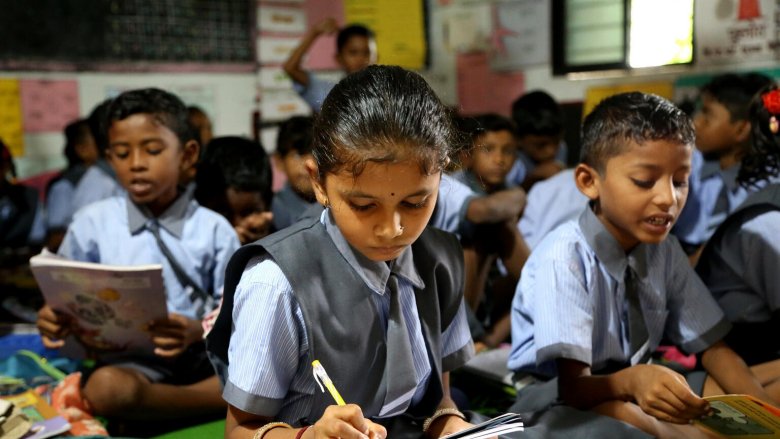Nearly six-out-of-ten children globally are estimated to be affected by learning poverty, meaning they are unable to read and understand a simple text by the age of ten. In low- and middle-income countries, the share is an estimated seven-out-of-ten children. This learning crisis has been exacerbated by the pandemic.
Children who cannot read and understand a simple text will struggle to learn anything else in school. They are more likely to repeat a grade and more likely to drop out of school. They are less likely to benefit from further training and skills programs. At a national level, this will lead to worse health outcomes, greater youth unemployment and deeper levels of poverty. Every child deserves the dignity and opportunity that foundational learning brings.
The Commitment to Action (CtA) recognizes that foundational learning provides the essential building blocks for all other learning, knowledge and higher-order skills.
It is a formal way for countries around the world and the global education community to demonstrate a commitment at the highest political levels to securing foundational learning for all children and to implement policies that will help to achieve targets under SDG4.
It is also an effort to articulate the shared ambition and evidence-based recommendations from national governments and partners, to ensure all children achieve foundational learning. By endorsing the CtA, countries and organizations commit to taking urgent and decisive action to reduce by half the global share of children unable to read and understand a simple text by age ten, by 2030.
The Commitment to Action is one of seven global initiatives launched at the UN Secretary-General’s Transforming Education Summit (TES), held in September 2022. The first draft of the CtA was agreed during the TES Pre-Summit in Paris in June 2022.
Endorsing the Commitment to Action
Members of the global education community and other partners, including civil society and youth organizations, are invited to endorse the Commitment to Action.
To endorse the Commitment to Action, national governments and supporting organizations should submit an official letter indicating endorsement to foundational.learning@unicef.org. Endorsement letters should include the contact information for an official representative and may include additional information regarding how the Commitment to Action will be implemented and advanced by the endorsing party.
To find out more about the Commitment to Action, please download the background briefing or contact foundational.learning@unicef.org
********
A Commitment to Action:
Ensure Foundational Learning as a key element to Transform Education
1. Low learning levels – the barrier children face
- The pre-COVID learning crisis has been made even more severe by the pandemic. Currently it is estimated that, globally, six out of every ten children suffer from learning poverty: they are unable to read and understand a simple text by the age of ten.
2. Foundational learning – why it is important
- The share of children unable to read with comprehension at age ten is a signal of the overall quality of education in a country. Foundational learning[1] provides the building blocks for all other learning, knowledge, and higher order skills that children and youth need to attain through education.
- Foundational learning is critical to enable all children to reach their full potential and participate in society.
- Ensuring foundational learning for all contributes to productive citizenship, sustainable development, inclusive growth, gender equality, national cohesion, peace and prosperity, and bolsters progress on all other Sustainable Development Goals.
3. Transforming education through foundational learning – a commitment to action
- We commit to taking urgent and decisive action, where learning levels are low, to ensure all children, including the most marginalized[2], develop foundational learning to realize their full potential.
- We commit to reducing the global share of children unable to read and understand a simple text by age ten, by half, by 2030. This commitment requires achieving national SDG 4 targets[3] in each country.
- To ensure recovery and accelerate learning, we will work immediately to enroll all children and keep them in school, particularly marginalized girls; increase access to remedial and catch-up learning and teach children at their current learning levels; support teachers, giving them the tools that they need; and support the health, nutrition and psycho-social well-being of every teacher and child.
- We will work together to close the education resource gap, and enable the investments, leveraging technologies and other reforms, needed to effectively advance foundational learning.
----------------------------------------------------------------------------------------------------------------
[1] Foundational learning refers to basic literacy, numeracy, and transferable skills such as socio-emotional skills.
[2] Marginalized children include but are not limited to the poorest children, girls, children with disabilities, and children in conflict and crises.
[3] This is consistent with, and will enable, achievement of other agreed global and national targets on foundational learning including SDG 4, and the global SDG4 milestone targets on girls’ education (40 million more girls in school, and 20 million more girls learning to read by age 10, in LICs an LMICs by 2026). The latest report on the national SDG 4 benchmarks countries have set is available here.
The Commitment to Action is also available on the UNICEF website.
Endorsements
From Governments
| From Organizations
|


